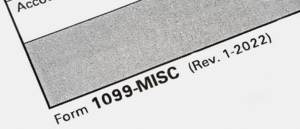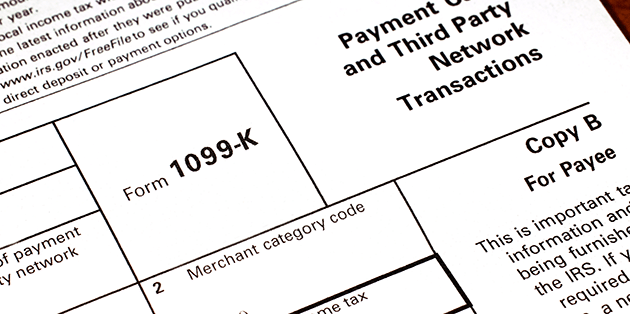1099’s, Payment Processing, and IRS Compliance
Each year, payment processors (third-party service providers) issue 1099 forms to merchants. But what exactly are these forms? And why are they so important? This article will examine 1099 forms, discuss their role in payment processing, and explain why they are essential for taxes. We will give helpful tips on how to check and confirm the information on these forms. This will help you meet your IRS obligations and avoid penalties.
So, let’s get started.
The Basics of Merchant Tax Obligations
Merchants, like all businesses, must report their income to the IRS. A major part of this process involves 1099 forms. There are different types of 1099 forms, each serving a unique purpose in tax compliance for merchants.
A key takeaway is that accurate records of all transactions are vital. The IRS instructs merchants to maintain thorough records to back up their income and expenses.
Here’s a quick list of critical tasks for merchants:
- Report all sources of income.
- Manage and understand 1099 forms.
- Ensure timely and correct tax payments.
- Maintain accurate records of transactions.
- Stay informed about tax law changes.
If these obligations aren’t met, it may result in serious issues, such as audits and fines.

Understanding the 1099 Forms: 1099-K vs. 1099-MISC
1099-K is primarily used for reporting payment card and third-party network transactions. Form 1099-K reports the gross amount of reportable payment transactions without adjustments for credits, discounts, fees, or refunds. Starting in 2024, the IRS plans to implement a phased approach for lowering the Form 1099-K reporting threshold to gross payments exceeding $5,000.
On the other hand, the 1099-MISC is used for miscellaneous income. This includes payments like rent or royalties that you won’t find on a 1099-K form. Knowing these differences helps you report your income correctly.
A 1099-K must be reviewed for accuracy. Merchants must reconcile these forms with their actual business income.
Navigating Payment Processing and IRS Reporting
Payment processing is crucial in how merchants report income to the IRS. These systems process transactions and provide the needed tax documents. Third-party payment processors, like IntelliPay, assist merchants in managing sales proceeds. They create 1099-K forms that summarize these transactions.
Payment Processors Issue 1099 Forms
Payment processors must file Form 1099-K with the IRS by February 28 (paper) or March 31 (electronic) and provide a copy to the merchant by January 31st.
Merchants should ensure their account details with processors are current and the business’s name, address, EIN, and ITINs are correct before filing taxes. Merchants need to tell their payment processors about any changes in their business. Name changes, DBA’s changes in ownership or authorized signor, address changes, etc., should all be reported when the change occurs or by the end of November to avoid problems.
Incorrect entries can lead to requests for tax changes. Errors in account information can also lead to misreported income, which can trigger unwanted scrutiny from the IRS.
Compliance: Avoiding Audits and Penalties
Compliance with IRS tax requirements is not optional for merchants. Merchants must report all income from goods and services, regardless of whether they receive a Form 1099-K or meet the reporting threshold.
Accurate records help merchants reduce the chance of mistakes and incorrect reporting. Regularly updating financial records ensures they reflect true business activity. This proactive approach provides a clear trail if the IRS requests documentation.

Record-Keeping Best Practices for Merchants
Keeping good records is important for following tax rules, preventing errors, and ensuring accurate reporting.
Merchants should consider the following practices:
- Keep digital copies of all sales receipts and invoices.
- Maintain a detailed log of expenses, categorized by type.
- Update records regularly to reflect real-time business transactions.
Experts recommend implementing these strategies since maintaining records regularly simplifies tax preparation and compliance.
Dealing with Discrepancies and IRS Notices
Facing discrepancies in tax forms can be daunting. Early detection, correction, and proactive actions minimize potential issues.
If there are mistakes on 1099-K forms, merchants should quickly identify them and contact their payment processor to make the needed changes. The payment processor will then issue an amended 1099. Sometimes, getting an amended 1099-K can take time, so the sooner discrepancies are corrected, the better.
We can’t emphasize enough that resolving mistakes before tax filing is essential.
If discrepancies lead to IRS notices, respond promptly. Please review the notice thoroughly and collect all necessary documents. You should use a tax professional, and acting quickly avoids further complications.
Staying Informed and Compliant with IRS Updates
Merchants need to keep up with IRS updates. Changes in tax laws and reporting rules can affect what merchants need to do. Staying informed helps merchants meet compliance standards. Industry trends can also be handled. New technologies and business models can change tax procedures. Staying informed about these changes helps merchants stay compliant.
Conclusion: The Merchant’s Roadmap to Tax Compliance
Navigating IRS tax obligations requires diligence. Merchants must understand the nuances of forms like 1099.
Being organized and acting quickly makes following IRS rules much easier. By regularly reviewing financial records and staying informed, merchants can mitigate risks.
Image credit: Adobe Stock


